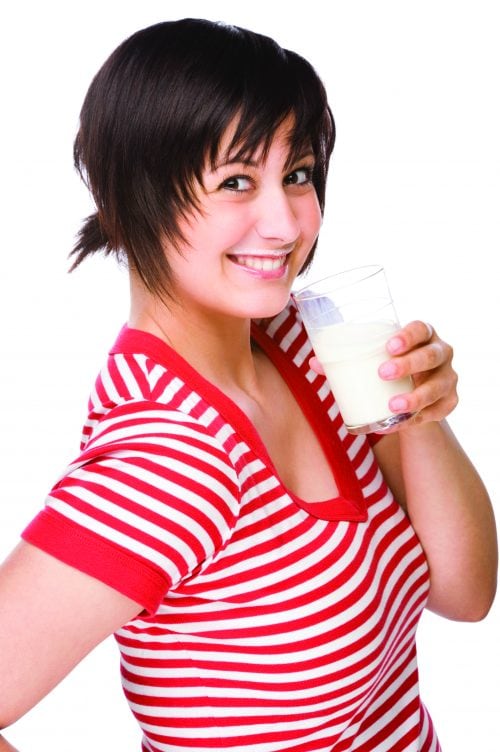
For some people, not drinking cow’s milk may be a matter of taste. For those with an allergy to cow’s milk, avoidance is a matter of necessity. HFG Senior nutritionist Rose Carr investigates the alternatives when cow’s milk is off the menu.
What’s available?
We are probably most familiar with soy milk as a dairy alternative. There are a whole range of soy milk options — from regular to reduced-fat varieties, high fibre and even flavoured soy milks. Other dairy alternatives include rice milk, oat milk and almond milk. Not all of these will provide the key nutrients cow’s milk normally provides in the diet so it’s important to know what you need and to read the labels.
Calcium
Milk and other dairy products are a rich source of bioavailable calcium, which is vital for bone health throughout life. When excluding dairy, and even for people who do include dairy but don’t consume two to three serves a day, it can be difficult to get the recommended amount of calcium each day. Fortunately, many of the milk alternatives are fortified with calcium. Those products with 120mg calcium per 100ml (300mg per 250ml) have a similar amount of calcium as standard cow’s milk. Two products with higher amounts of calcium are Vitasoy Calci-Plus Soy milk with 160mg per 100ml (400mg per 250ml) and Sanitarium So Good Essential Soy milk with 160mg per 100ml (400mg per 250ml).
Unless you know you are achieving your calcium needs in other ways, we recommend using a dairy milk alternative with added calcium.
Protein
Most soy milks contain a similar amount of protein to cow’s milk with around 3-4g protein per 100ml or around 7-8g in a 250ml glass. However, the cereal and nut-based milks tend to be very low in protein with many containing only 1g or less protein in a 250ml glass. It’s preferable to include some protein with a snack and the low protein content of some of these milks will make them less filling or satisfying.
For anyone allergic to soy, two products with more protein than the others are Pure Harvest Organic Oat Milk with 2.5g protein per 100ml (5.3g in 250ml) and Vitasoy Protein Enriched Rice Milk with 4.2g per 100ml (10.5g in 250ml).
Saturated Fat
When choosing cow’s milk it is important to choose low-fat products as the fat from animals contains high amounts of saturated fat, which we want to limit. Plant-based milks on the other hand contain healthy polyunsaturated and mono-unsaturated fats and generally have less than one per cent saturated fat.
Sugar
Soy milks contain added sugars to make them more palatable, with most containing 1-2g sugar per 100ml although some are higher at 3-4g per 100ml. One teaspoon of sugar is around 5g lower amounts are preferable.
Some of the other milks are higher in sugars but for many this is a result of some of the carbohydrates in the oats or rice dividing into their sugar components rather than from added sugar. Some highlight ‘no added sugar’ but on products where that is not stated read the ingredients list to find out where the sugar has come from as some do have added sugar.
What else is added to soy milk?
Most soy milks also contain added riboflavin and vitamin B12, which are found in cow’s milk. Vegetarians need to add B12, an essential vitamin, to their diets as it is only found in animal products.
See some of our other milk and milk alternative articles:
FODMAP content of milk and milk alternatives
How to choose milk alternatives
Lactose intolerance and milk allergy
The rules on dairy alternatives sold as milk
www.healthyfood.com










